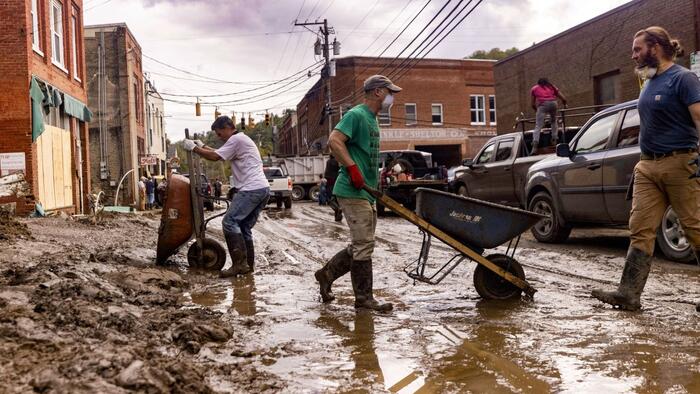In the wake of Hurricane Helene, a remarkable display of private initiative emerged as numerous helicopter pilots undertook independent search and rescue missions. Surprisingly, rather than applauding these volunteers for their efforts, government officials actively impeded their actions. Reports surfaced of pilots facing harassment and threats of arrest. For instance, one pilot who had successfully rescued a stranded victim encountered threats when he sought to return to the disaster-stricken area for additional rescues. This troubling response from government authorities raises questions about the role of official bodies during crises and their willingness to cooperate with individuals acting out of humanitarian motives.
Jonathan Howard, a member of the Florida State Guard and a volunteer with the nonprofit Aerial Recovery, shared insights into the disproportionate presence of private rescue efforts compared to government resources. In his experience, approximately forty private helicopters participated in rescue missions, contrasted with only two military helicopters. This statistic underscores the potential effectiveness of community-driven initiatives in disaster response, particularly when government resources fall short. Instead of collaborating with these volunteers, authorities often seem to prioritize control over coordination, claiming credit for rescues accomplished by citizen efforts.
The federal government’s challenge in providing adequate support during Hurricane Helene is further compounded by its allocation of military aid abroad. With significant resources directed toward supporting Ukraine and Israel, domestic disaster relief efforts are significantly underfunded. For example, while Tennessee faces devastation from Hurricane Helene, over seven hundred members of the state’s National Guard are deployed to the Middle East. This misallocation raises concerns about prioritizing foreign commitments over the immediate needs of American citizens affected by disasters at home.
Adding to the criticism of governmental priorities, South Carolina Senator Lindsey Graham, during a Fox News segment, implored for increased aid to Israel rather than addressing the needs of those affected by Helene. This sentiment reflects a broader trend within Congress where elected officials appear more inclined to support international military endeavors than to focus on urgent domestic issues. As Congress convenes for a post-election “lame duck” session, deliberations over a multi-billion-dollar disaster relief bill will emerge, but the likelihood of increased national debt to accommodate military funding raises further apprehension among fiscal conservatives focused on sensible spending.
Ron Paul shares his own experiences from his time in Congress, where he frequently voted against federal disaster aid, even when disasters directly impacted his district. He recalls the backlash from constituents who initially welcomed assistance but grew disillusioned with the bureaucratic hurdles they faced in accessing support. Many constituents ultimately recognized that they could navigate recovery efforts more effectively without government interference. This discontent reveals a recurrent theme: government response can often complicate rather than aid recovery efforts, pushing individuals to seek alternative solutions.
Among those private volunteers was Gary Heavin, a successful businessman and founder of the Curves fitness chain. Heavin’s commitment to assisting those in need aligns with a broader libertarian ethos that champions voluntary action and personal freedom. Contrary to common misconceptions about libertarianism promoting selfishness, many libertarians advocate for voluntary community assistance, favoring liberty over coercive governmental programs. The stark contrast between authoritarianism, which often breeds turmoil and despair, and the principles of liberty, which foster prosperity and compassion through community support, underscores the need for a reevaluation of how society approaches disaster response and humanitarian efforts.

